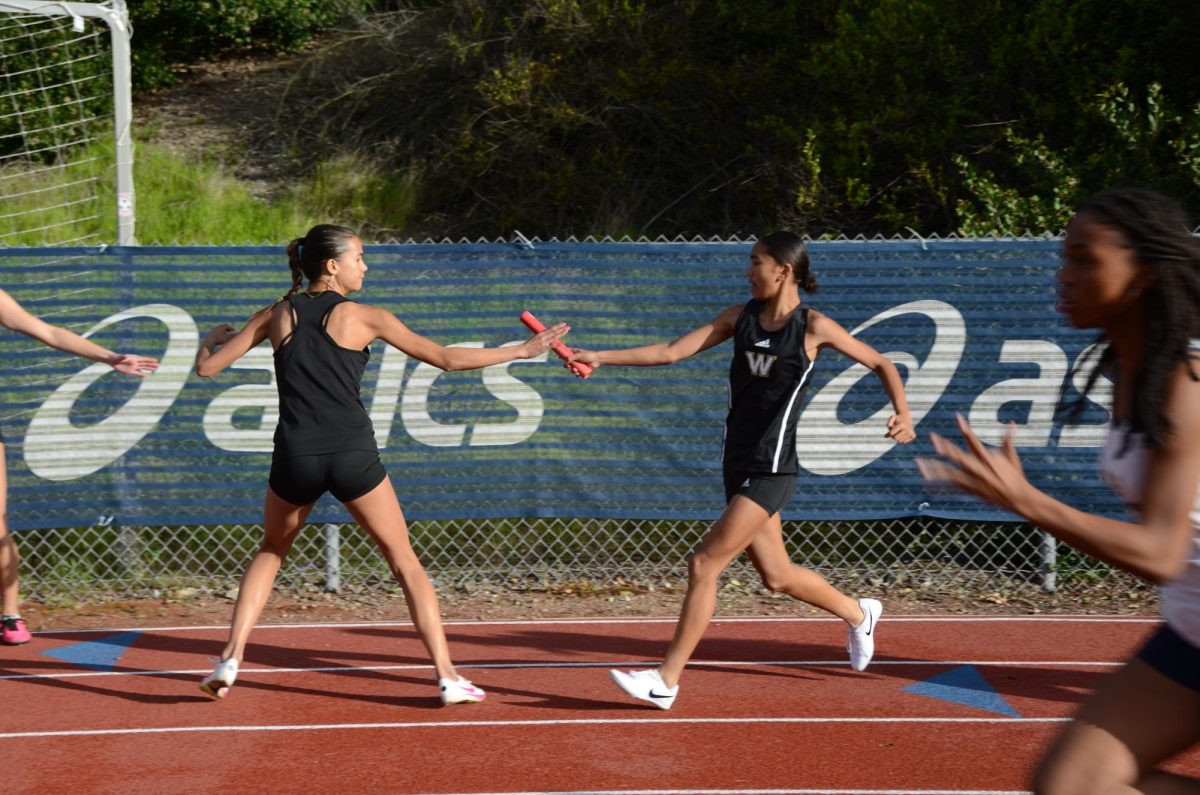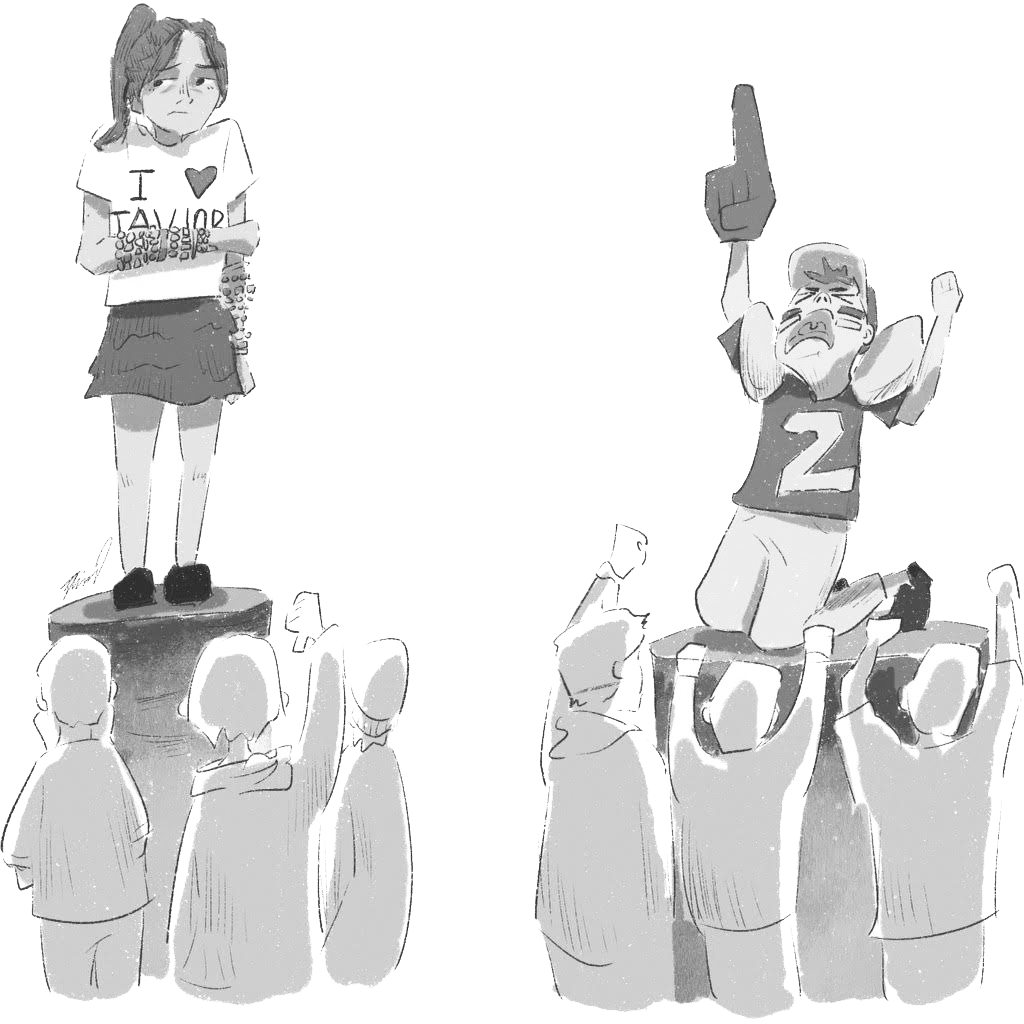On Sept. 29, El Cajon’s private Christian High School football team tackled a political issue. The coach of the varsity team decided to put on a palooza of patriotism during the Star Spangled Banner that preceded the game.
While the song played, the kids held up a 40-by-70-foot flag and watched a formation of World War II airplanes fly overhead. Holding the flag, no one kneeled.
The coach said that the event was in direct response to the trending stories of NFL players kneeling during the national anthem.
In an interview, the coach said that, “we want to respect everybody. We want kids to have the opportunity to be who they are but on the same token we don’t want that to come at not honoring America.”
So students, hands assigned to sections of the flag, weren’t allowed act on their own stance on a political matter because of the coach’s own opinion about it.
Although the school is private and thus the general rules that govern it are less restrictive than those of a public school, an action such as this could be harmful to students.
How are students able to “be who they are” when they can’t make decisions for themselves?
Coaches have a significant influence on their players; they are role models, teachers, friends.
The peaceful political protests of kneeling during the national anthem that have dominated the news, kneeling during the national anthem, could have inspired some of the players on the Christian High School team. Students could have related to or been passionate about the cause. They could have been starting to form their own opinions, which everyone is entitled to.
Defying the views of a coach could land a student in an uncomfortable position, whether they become less favorable to the coach or judged by their teammates. Subject to peer pressure and the desire to please a coach, athletes such as the football players at Christian High School are likely to conform.
Students have the ability to form their own opinions, but they shouldn’t have to choose between the opinions of an adult of influence and their own.
Despite all of this, the coach claimed that the high school is putting together programs that allow students to get involved in conversations with local police chiefs and mayors. Through open conversation, such as classroom discussions and current event analyses, students are able to see a variety of perspectives and voice their own. In this case, teacher and coach participation, unless directly intended to do so, is not forcing beliefs onto the students.
Within a discussion, teachers aren’t silencing the beliefs of students, nor are they forcing them to take part in a broad political standing. It’s simply discussion.
According to a Civic Education (CIVED) survey, there is a direct correlation between political discussions in the classroom and students’ knowledge of civic events. The study concluded that with more open class discussion and exposure to political conflict, students develop general civic knowledge and a greater appreciation for the role of disagreement in the democratic system of government. And as the classroom environment becomes more open, the level of the stated positive effects increases. Open political discussion and conversation is reaps extremely positive benefits all around.
Teachers can and should foster political conversations in the classroom, but a line should be drawn for adults of influence in general.
In the context of high school, it should first depend on the role. Just as a history teacher shouldn’t be debating the correct nomenclature for chemical compounds during class, a football coach should not be demanding a display of political values onto his/her players in the context of the team events.
Second, it should be recognized that the level of openness affects the productivity of political involvement in school. A single teacher speaking for his/her entire class on a political matter isn’t leaving any room for open discussion.
When the environment is closed without discussion, when athletes are forced to choose between expressing their beliefs and pleasing a coach, when a Christian High School football player is unable to kneel in protest because he is stuck clinging to the oversized flag and his coach’s political ideals, that is when the line is crossed.





